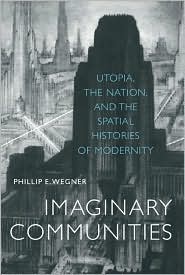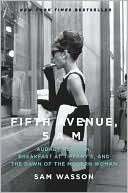Imaginary Communities: Utopia, the Nation, and the Spatial Histories of Modernity
"Wegner demonstrates a wide-ranging yet lighthanded philosophical learnedness, an urgent political conscience, and a deeply historical sense that narrative utopias are like specters that haunt particular moments of upheaval, crisis, and contradiction within modernity:whether the threshold between the vestiges of feudal agrarian society and early modern English capitalism, conflicts between the new oligarchy of industrializing late nineteenth-century United States and the increasing militancy...
Search in google:
"Imaginary Communities is a beautiful treatment of utopian narratives as the quintessential genre for figuring social space in the modern nation-state. Wegner demonstrates a wide-ranging yet lighthanded philosophical learnedness, an urgent political conscience, and a deeply historical sense that narrative utopias are like specters that haunt particular moments of upheaval, crisis, and contradiction within modernity: whether the threshold between the vestiges of feudal agrarian society and early modern English capitalism, conflicts between the new oligarchy of industrializing late 19th c. United States and the increasing militancy of the labor movement, the uneven successes and failures of the Russian Revolution of 1905, or the mid-century Cold War struggles."—Lisa Lowe, author of Immigrant Acts: On Asian American Cultural Politics"In this important book, Wegner argues that the historical work done by utopian narratives should be reconsidered, interrogated, challenged—and continued. Insightful and provocative, Imaginary Communities will prove a valuable contribution to our thinking about the politics of imagination."—Daniel Cottom, author of Cannibals and Philosophers: Bodies of Enlightenment"Phillip Wegner's Imaginary Communities represents a major intervention in our understanding not merely of utopian literature, but the very ways in which we view our world. His concept of utopian narrative as both vision and practice, as participating in "real" worlds, a force for change rooted in the social world "as it is" and as it is becoming and is "imagined," succeeds wonderfully well; his notion of the imperative of "failure" as a resource of hope is deeply humane. He provides a body of work worth thinking through and thinking with. As a historian, I find the historicity of his approach, the literary arch spanning from the origins of the European nation-state to our global present and future, compelling in its ambition and execution. Wegner moves well beyond the more tired moves of "new historicist" literary criticism: this is historicist scholarship in a new key."—James Epstein, author of Radical Expression: Political Language, Ritual, and Symbol in England, 1790-1850
AcknowledgmentsIntroduction: The Reality of Imaginary Communities1Genre and the Spatial Histories of Modernity1The Institutional Being of Genre4Space and Modernity10Estrangement and the Temporality of Utopia172Utopia and the Birth of Nations27Reauthoring, or the Origins of Institutions27Utopiques and Conceptualized Space34Crime and History40Utopia and the Nation-Thing45Utopia and the Work of Nations593Writing the New American (Re)Public: Remembering and Forgetting in Looking Backward62Remembering62The Contemporary Cul-de-Sac65Fragmentation68Consumerism and Class74"The Associations of Our Active Lifetime"81Forgetting874The Occluded Future: Red Star and The Iron Heel as "Critical Utopias"99Red Star and the Horizons of Russian Modernity102The Long Revolution of The Iron Heel116"Nameless, Formless Things"119"Gaseous Vertebrate"126Simplification and the New Subject of History1325A Map of Utopia's "Possible Worlds": Zamyatin's We and Le Guin's The Dispossessed147Reclaiming We for Utopia147The City and the Country151Happiness and Freedom158The Play of Possible Worlds161We's Legacy: The Dispossessed and the Limits of the Horizon1726Modernity, Nostalgia, and the Ends of Nations in Orwell's Nineteen Eighty-Four183From Utopian Modernism to Naturalist Utopia185Orwell and Mannheim: Nineteen Eighty-Four as "Conservative Utopia"192The Crisis of Modern Reason197Modernization against Modernity: The Culture Industry and "Secondary Orality"208"If there was hope ...": Orwell's Intellectuals216Notes229Index287








